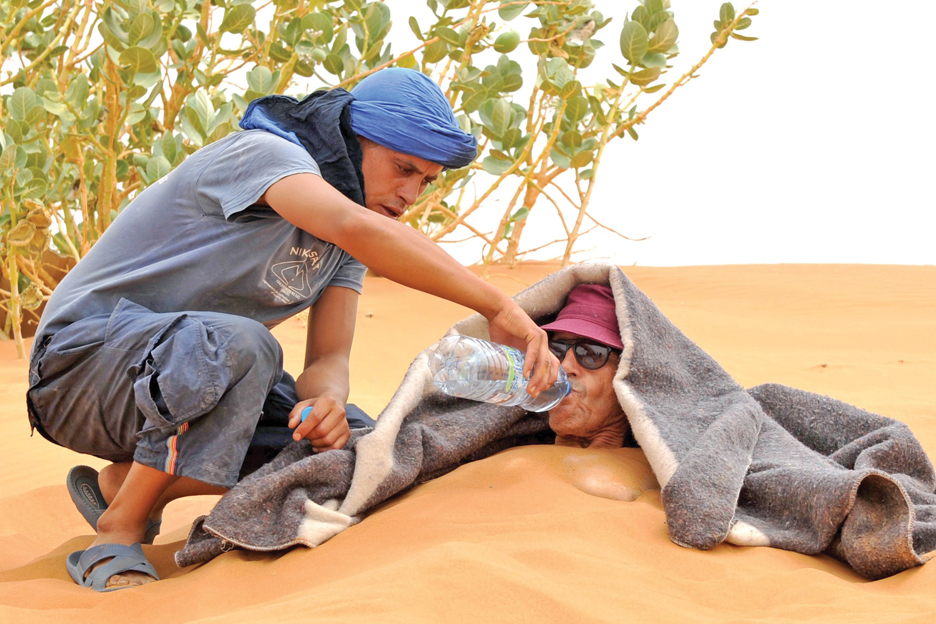AGENCE FRANCE-PRESSE
The dunes of Merzouga tower over the small community in southeastern Morocco, where the Berber Ait Atta tribe makes a brisk living from tourism.
For years, the formerly nomadic tribesmen have been running hotels and restaurants in Merzouga, a key stop on the Moroccan tourist trail on the edge of a sea of sand dunes. Now they’re turning to the sands themselves to attract visitors.
For about 10 minutes, visitors are buried neck deep in the hot sand for therapy said to benefit those who suffer from ailments including rheumatism, lumbago, polyarthritis and some skin disorders.
The therapy has the same effect as a sauna session, helping to purge the body of poisonous toxins, according to tribesmen such as Abdessalam Sadoq, who now works in wellness tourism.
“We offer every type of tourism here, but especially for health,” he said.
Visitors in search of a cure do not come only from abroad: Many Moroccans also firmly believe in the power of the desert. “I really feel much better, and each year I come back here to spend a week,” said sciatica sufferer Ali Kallamouche, from the central town of Beni Mellal.
A sand bath at Merzouga costs up to 10 euros ($13), and when customers shake off the sand, they are wrapped in hot towels to avoid shock when their bodies suddenly begin cooling.
“People come for sand baths … and to taste the local dishes we make using medicinal plants and herbs,” said Sadoq, who also heads an association to promote tourism in the Sahara.
Tourism is a cornerstone of Morocco’s economy, contributing 10 percent of the gross domestic product. It also is growing, thanks to the development of wellness tourism.

